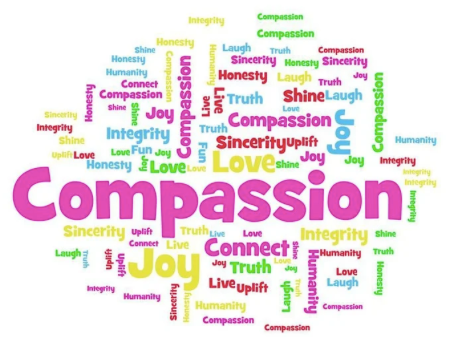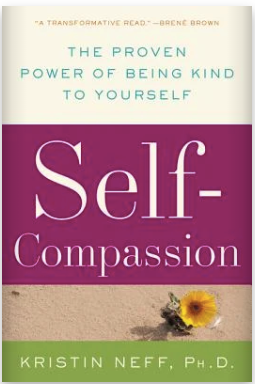MINDFULNESS BLOG/HEATH BLOG/KINDNESS BLOG/TEAMWORK BLOG
The Up Deeds blog
Our blog posts are created by those that share the same call to give back to others.
We give them the full credit they are due, and links so you can benefit from other information they share.

Embracing the Essence of Compassion in Our Lives
By Up Deeds
Definition of Compassion
Compassion is the capacity to recognize the suffering of others and to take action, motivated by an urge to alleviate that suffering. It combines empathy, understanding, and a desire to help, creating a profound connection between individuals.
How Compassion Works
Compassion functions by opening us up to the experiences and emotions of others. It encourages us to be present and attentive, allowing us to fully perceive the struggles faced by those around us. This awareness often leads to an impulse to assist, whether through emotional support, practical help, or advocacy for change. Compassion acts as a bridge, fostering connections that remind us of our shared humanity.
Who It Helps
Compassion is beneficial for everyone involved. The receiver of compassion often feels understood and valued, which can alleviate feelings of isolation and despair. For the giver, practicing compassion fosters a sense of purpose, enhances emotional well-being, and strengthens social bonds. Organizations that embody compassion create environments of support and community, enabling both employees and clients to flourish.
Impact of Compassion
The impact of compassion can be profound, both positively influencing individuals and organizations. For instance, a compassionate act, such as volunteering at a local shelter, not only aids those in need but also enriches the volunteer's life with new perspectives and fulfillment. Similarly, organizations that emphasize compassion in their mission—like hospitals prioritizing patient care or nonprofits advocating for the marginalized—often see increased trust, loyalty, and positive outcomes from both clients and employees.
Examples of Compassionate Impact
1. Healthcare Providers: When doctors practice compassion, patients often feel more comfortable discussing their concerns, leading to better diagnoses and treatment plans. A study showed that compassionate care improved patient outcomes, satisfaction, and adherence to medical advice.
2. Community Volunteers: Volunteers at food banks or shelters not only provide essential resources but also build a sense of community. These acts help individuals feel more connected, which can decrease loneliness and increase feelings of belonging.
3. Companies and Workplaces: Businesses that adopt compassionate policies, such as flexible work hours for parents or mental health days, foster a happier workforce. Employees working in such environments report higher engagement, productivity, and lower turnover rates.
Organizations Known for Compassion
1. Doctors Without Borders (Médecins Sans Frontières): An organization that provides medical care where it's needed most. [Website](https://www.msf.org)
2. Habitat for Humanity: A nonprofit organization that helps families build and improve places to call home. [Website](https://www.habitat.org)
3. The Red Cross: Provides emergency assistance, disaster relief, and education in communities. [Website](https://www.redcross.org)
4. Compassion International: Focused on child development and support through sponsorship programs. [Website](https://www.compassion.com)
People know for their Compassion
1. Mother Teresa (Saint Teresa of Calcutta):
- Impact: Mother Teresa dedicated her life to serving the poorest of the poor in India and around the world. Her compassion brought relief to countless individuals suffering from poverty and illness. By founding the Missionaries of Charity, she provided shelter, food, and medical care, instilling a sense of dignity and hope in many vulnerable lives.
2. Mahatma Gandhi:
- Impact: Gandhi advocated for nonviolent resistance and compassion towards all beings. His commitment to peaceful protest against injustice inspired millions and fostered social change in India. His compassion led to a greater awareness of the struggles faced by the oppressed, promoting social justice and unity.
3. Martin Luther King Jr.:
- Impact: As a leader of the American civil rights movement, King preached love and nonviolence while advocating for the rights of African Americans. His compassionate approach to activism inspired profound changes in legislation and societal attitudes, helping to alleviate racial tensions and promote equality.
4. Nelson Mandela:
- Impact: After spending 27 years in prison for his fight against apartheid, Mandela emerged with a message of reconciliation rather than vengeance. His compassion helped forge a peaceful transition to democracy in South Africa, healing a divided nation and inspiring hope for unity among diverse communities.
5. Oprah Winfrey:
- Impact: Through her media platform, Oprah has shared stories of struggle and resilience, promoting empathy and understanding. Her charitable works, including the establishment of the Oprah Winfrey Foundation and Oprah’s Angel Network, have funded numerous initiatives for education, healthcare, and empowerment, positively influencing the lives of many individuals.
6. Malala Yousafzai:
- Impact: After surviving an assassination attempt by the Taliban for advocating girls’ education, Malala has continued her campaign for education around the world. Her compassion for others, especially girls in oppressive cultures, has raised awareness and brought about significant changes in educational policies in various countries.
7. Eleanor Roosevelt:
- Impact: As a former First Lady and a human rights activist, Roosevelt championed social causes and advocated for the rights of women and minorities. Her compassion helped inspire the Universal Declaration of Human Rights, making a lasting impact on global human rights movements.
These individuals exemplify how compassion can create meaningful changes in the lives of others. Their acts not only provide immediate aid but also inspire broader social movements, fostering a sense of community and connection that transcends individual experiences.
Small Acts of Compassion
To begin a journey of compassionate living, one can start with small acts:
1. Listening Actively: Offer a sympathetic ear to a friend in need.
2. Acts of Kindness: Hold the door open for someone, or offer your seat on public transport.
3. Volunteer Locally: Dedicate a few hours to help at a nearby shelter or food bank.
4. Compliments: Write a note of appreciation to a colleague or loved one.
5. Random Acts of Kindness: Pay for someone's coffee or send a care package to someone you know.
Expanding Your Journey of Compassion
Once comfortable with small acts, individuals can expand their compassionate journey in several ways:
1. Engaging in Advocacy: Stand up for social or environmental causes that align with your values.
2. Mentorship: Offer guidance or support to someone seeking help in personal or professional growth.
3. Community Involvement: Join local groups focused on improving community welfare.
4. Education and Awareness: Attend workshops or seminars that focus on social issues and how to help.
5. Sharing Stories: Use social media or community platforms to raise awareness and encourage others to act compassionately.
Long-Term Benefits of Compassion
The long-term benefits of embracing compassion are substantial:
- For the Giver: Increased happiness, reduced stress, and improved mental health are often reported by those who regularly practice compassion.
- For the Receiver: Enhanced emotional stability and social connections can lead to improved mental and physical health outcomes.
- For the Community: A compassionate community fosters collaboration and support, leading to a stronger, more resilient society.
- For Society: Broader societal compassion can result in systemic changes that tackle issues like poverty, inequality, and social injustice, ultimately leading to a harmonious coexistence.
Living a more compassionate life offers numerous physical and mental health benefits, contributing to overall well-being. Here are some of the key advantages:
Physical Health Benefits
1. Reduced Stress Levels: Engaging in compassionate acts can lower stress hormones like cortisol. Reduced stress contributes to better cardiovascular health and diminished risk of chronic diseases.
2. Enhanced Immune System: Studies suggest that compassion and positive social interactions can boost immune function, making the body more resilient against infections.
3. Lower Blood Pressure: Compassionate behaviors can lead to lower blood pressure, promoting better heart health and reducing the risk of heart disease.
4. Increased Longevity: People who regularly practice compassion and engage in community service often report longer, healthier lives due to the combination of emotional well-being and improved physical health.
Mental Health Benefits
1. Improved Mood: Acts of compassion release neurotransmitters like oxytocin and endorphins, which enhance feelings of happiness and reduce symptoms of depression.
2. Increased Sense of Purpose: Compassionate individuals often experience a greater sense of meaning and purpose in life, which can combat feelings of emptiness and anxiety.
3. Emotional Resilience: Practicing compassion helps build emotional resilience, enabling individuals to better cope with life's challenges and recover from adversity.
4. Stronger Relationships: Compassion fosters deeper connections with others, reducing feelings of loneliness and isolation. This support system can be crucial for mental health.
5. Enhanced Self-esteem: Helping others can boost confidence and self-esteem as individuals recognize their ability to make a difference, reinforcing a positive self-image.
6. Decreased Anxiety: Engaging in compassionate behaviors can distract from negative thoughts and worries, leading to lower levels of anxiety and greater peace of mind.
In conclusion, compassion is a powerful force that enriches lives and communities. By integrating compassion into our daily lives, we pave the way for a more understanding and interconnected world, benefiting both ourselves and those around us.
In essence, living a compassionate life not only benefits others but also profoundly affects one’s own physical and mental health. By cultivating compassion, individuals can experience a holistic improvement in their well-being, ultimately leading to a richer, more fulfilling life.
Benefits for the Receiver of Compassion:
1. Increased Resilience: When individuals receive compassion, they often find the strength to cope with their difficulties. Feeling supported can enhance their ability to face challenges and recover from setbacks, fostering a greater sense of resilience in the face of adversity.
2. Enhanced Emotional Health: Compassionate interactions can lead to a reduction in anxiety and depression. Knowing that others care can significantly boost the mental health of individuals who feel isolated or powerless, leading to improved overall well-being.
Benefits for the Giver of Compassion:
1. Improved Emotional Well-Being: Engaging in acts of compassion can release endorphins, leading to the "helper's high." This feeling of happiness and satisfaction can elevate the giver's mood and lead to a greater overall sense of fulfillment in life.
2. Development of Empathy and Understanding: When individuals give compassion, they often gain a deeper understanding of different perspectives and experiences. This growth in empathy not only enhances their relationships with others but can also improve their emotional intelligence, making them better communicators and supporters.
3. Stronger Community Connections: Practicing compassion fosters a sense of community and belonging. When individuals engage in compassionate acts, they often form bonds with others, leading to a stronger social network that provides additional support and encouragement.
Good luck and best wishes on your journey.
To find these books and others on compassion, click on the books below and "search compassion"
Would you like to receive a monthly uplifting and helpful blog?
That's great to hear, just click the button to sign up.


